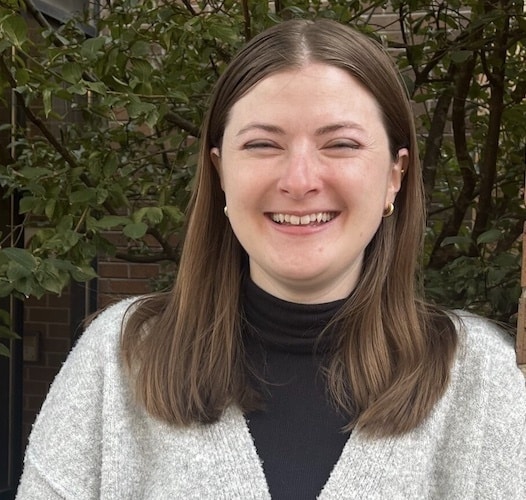Samantha is a psychotherapist at Wildflower. In her clinical practice, Samantha draws on Acceptance and Commitment Therapy, Internal Family Systems, and Cognitive Behavioral Therapy. Samantha works with adolescents, adults, couples, and family structures experiencing stressful transitions, anxiety, mood disorders, trauma, and relationship issues. Samantha has experience in addressing grief and loss, anger management, health anxiety, and complex trauma. She obtained her master’s degree at The Chicago School of Professional Psychology in Counseling Psychology. Read Samantha’s full bio here.
What inspired you to pursue a career as a psychotherapist?
In my own life, I have always taken on the role of listener and confidante. I believe I am a genuinely curious and empathetic individual, truly caring about others and wanting to help. Therefore, I consider it a privilege to walk alongside my clients through their therapy journey, in my role as a psychotherapist. I believe that with hope and determination a person is capable of anything they set their mind to and I have always been inspired by a person’s capacity for change.
As a psychotherapist, what part of your job is most satisfying?
It is most satisfying when I am able to create a trusting and safe environment in the therapeutic relationship. This work is not possible without a solid foundation, which takes collaboration and vulnerability from both myself and my clients.
How would you describe your therapeutic approach?
As a therapist, I take a holistic approach to healing the mind, body, and spirit, knowing that one part is not separate from the other. I prioritize collaboration with my clients, respecting that they are the experts on their own lives and promoting self-empowerment. I aim to create an environment that embodies compassion and non-judgment to create space for my clients to process their thoughts and feelings and foster openness to explore alternate perspectives. In my role as a therapist, I commit to showing up with authenticity and curiosity.
Why do you believe that psychotherapy can help?
I believe therapy is a unique experience of talking with someone who is completely objective and non-judgmental, and therefore allows people to process what they need to in their own time and way. Therapy may be the only time when a person feels listened to and made to feel that their thoughts and feelings really matter to someone else, which in and of itself is immensely healing.
What are some of your specialties and what drew you to them?
A few of my specialties include grief/loss and anger management. Although very different topics, they both involve learning how to process and cope with big emotions. I am very interested in helping clients understand the “why” behind their emotions and increasing one’s own self-awareness. I am also particularly interested in helping clients with health anxiety, especially as we learn about the ever-growing impacts of the COVID-19 pandemic.
What is one thing about psychotherapy you wish everyone knew?
There is not a “one size fits all” approach to therapy. Every person coming to therapy is a unique individual and therefore the help and resources they receive will be different. That is why a collaborative relationship is important to ensure each person receives a client-tailored approach.
What is your motto or personal mantra?
“It’s chaos, be kind” -Michelle McNamara
The meaning I attribute to this quote is that there are many things out of our control, but what we do have control over is trying to be kind to ourselves and to others along the way.
What are your favorite self-care activities?
I enjoy curling up with a good book, walking outside (especially in the fall), and spending time by Lake Michigan. I find spending time in nature to be incredibly cathartic. Any time spent being calm and still for a moment is what I prioritize in our busy world.


